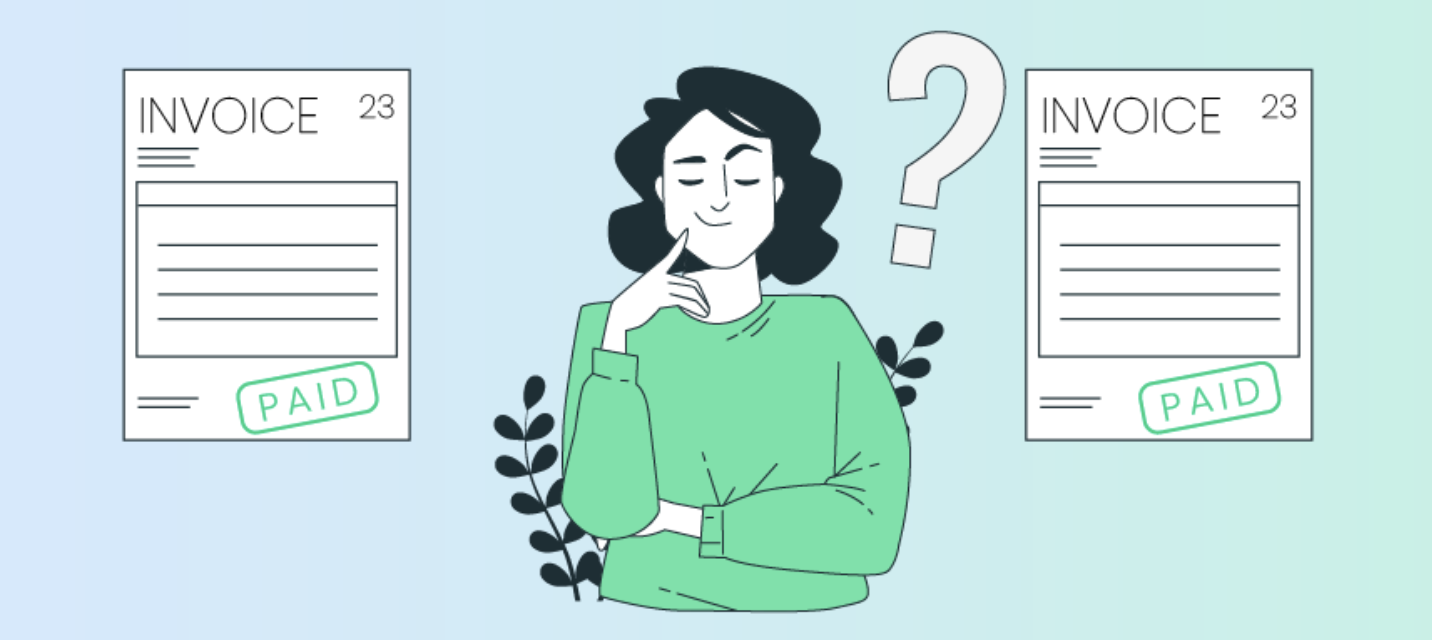Comments
- No comments found

In the dynamic realm of entrepreneurship, financial literacy is a cornerstone of success.
Understanding and effectively managing financial documents, such as invoices, is crucial for entrepreneurs to maintain fiscal health, make informed decisions, and ensure the sustained growth of their ventures. This comprehensive guide will explore the significance of financial literacy for entrepreneurs, with a particular focus on reading and managing invoices correctly.
A key aspect of financial literacy involves not only comprehending invoices but also navigating the quoting process effectively. Introducing the quote template as a valuable tool, entrepreneurs can streamline the communication of project costs and services to potential clients.
Informed Decision Making: Entrepreneurs equipped with financial literacy can make well-informed decisions based on a comprehensive understanding of their financial landscape. This includes assessing the financial health of their businesses, identifying areas for improvement, and strategically planning for the future.
Risk Management: Financial literacy enables entrepreneurs to assess and mitigate financial risks effectively. By understanding financial statements, cash flow, and other financial indicators, entrepreneurs can identify potential risks and implement strategies to safeguard their businesses against economic uncertainties.
Strategic Planning: Entrepreneurs with financial literacy can engage in strategic planning, setting realistic financial goals and developing actionable plans to achieve them. This includes budgeting, forecasting, and allocating resources efficiently to support business objectives.
Investor Confidence: When entrepreneurs demonstrate financial literacy, it instills confidence in investors and stakeholders. Investors are more likely to support businesses led by individuals who can articulate a clear understanding of their financial position, growth potential, and risk mitigation strategies.
Resource Optimization: Financially literate entrepreneurs can optimize resources, ensuring that funds are allocated efficiently to areas that contribute most to business growth. This includes identifying cost-saving opportunities, negotiating favorable terms with suppliers, and maximizing the return on investment.

In the realm of financial literacy, invoices play a pivotal role as essential financial documents that detail transactions between a business and its clients or customers. Entrepreneurs must possess a clear understanding of the components of an invoice:
Invoice Header: This section includes essential information such as the business name, address, contact details, and invoice number. It provides a quick reference for both the business and the client.
Invoice Date and Due Date: Understanding the invoice date and due date is crucial for managing cash flow. The invoice date indicates when the product or service was delivered, while the due date specifies the deadline for payment.
Itemized List of Products/Services: Invoices should include a detailed breakdown of products or services provided, each with its corresponding cost. This transparency ensures clarity and helps in resolving any discrepancies.
Terms of Payment: Clearly defined payment terms outline the conditions under which the payment should be made. This includes details such as the accepted payment methods, late payment penalties, and any applicable discounts for early payments.
Total Amount Due: The total amount due is the sum of all charges on the invoice. Entrepreneurs should double-check this figure to ensure accuracy and consistency with the provided goods or services.
Implementing Invoicing Software: Entrepreneurs can leverage modern technology by using invoicing software to automate and streamline the invoicing process. This not only reduces the likelihood of errors but also enhances efficiency in generating, sending, and tracking invoices.
Maintaining an Organized Filing System: Creating a systematic filing system for invoices helps entrepreneurs keep track of financial transactions. Whether using physical folders or digital platforms, a well-organized filing system ensures easy access to historical invoices for reference and auditing purposes.
Regularly Reconciling Invoices: Regular reconciliation of invoices with financial statements helps identify any discrepancies or outstanding payments. Entrepreneurs should reconcile invoices monthly to maintain accurate financial records and address any issues promptly.
Establishing Clear Communication Channels: Effective communication with clients is essential for invoice management. Entrepreneurs should establish clear communication channels to address any client inquiries, provide additional information if needed, and ensure timely payments.
Implementing a Follow-Up System: Entrepreneurs should implement a follow-up system to track overdue payments. Automated reminders or personalized follow-up communications can help maintain positive client relationships while ensuring timely receipt of payments.
Online Courses and Workshops: Entrepreneurs can enroll in online financial literacy courses and workshops to enhance their understanding of financial concepts, including invoice management. Many platforms offer courses tailored to the specific needs of entrepreneurs.
Engaging with Financial Advisors: Seeking guidance from financial advisors or accountants can provide personalized insights into managing invoices and overall financial health. These professionals can offer tailored advice based on the specific challenges and goals of the entrepreneur.
Networking and Peer Learning: Entrepreneurs can engage in networking events or join business communities to learn from peers who have experience in effective invoice management. Sharing insights and best practices with other entrepreneurs can contribute to continuous learning.
Reading Relevant Literature: Keeping abreast of financial literature and publications related to entrepreneurship and invoice management provides a continuous learning opportunity. Books, articles, and research papers can offer valuable insights and practical tips.
Financial literacy is an indispensable skill for entrepreneurs, and proficiency in reading and managing invoices is a crucial aspect of this literacy. By understanding the significance of financial literacy, entrepreneurs can make informed decisions, mitigate risks, and strategically plan for the growth of their businesses. With a clear understanding of invoices, entrepreneurs can ensure transparent financial transactions, maintain positive client relationships, and contribute to the overall success and sustainability of their ventures.
Furthermore, entrepreneurs with a strong grasp of financial literacy are better positioned to navigate the complexities of the business landscape. Beyond invoice management, this expertise empowers them to interpret financial statements, optimize resource allocation, and establish robust financial strategies. In essence, financial literacy becomes a guiding compass, aiding entrepreneurs in fostering fiscal responsibility, adapting to market dynamics, and driving long-term prosperity for their ventures. As businesses evolve, the continuous cultivation of financial literacy remains a key driver for entrepreneurial success, underscoring its enduring importance in the ever-changing world of commerce.
Leave your comments
Post comment as a guest